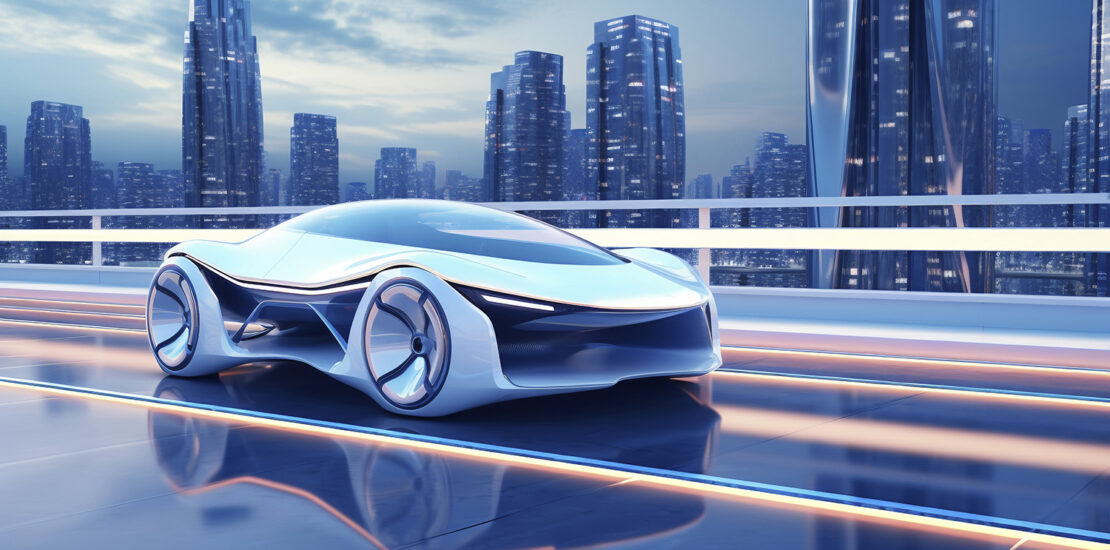- May 30, 2024
- Posted by: Dordea Paul
- Categories: Automotive, Innovation, International

From the first creative spark in designing a car to the manufacturing, marketing and sales cycles of a vehicle, the digital future of the automotive industry is here, with artificial intelligence (AI) proving to be a vital tool. While the application of AI to increasingly self-driving vehicles may be well known, it is accelerating all aspects of the industry as car makers apply it in different ways.
“AI technology is moving at the speed of light, and its impact on the auto industry is just as disruptive as anywhere else,” Stephanie Brinley, associate director of research and analysis at S&P Global
“AI and generative AI are having an impact on workflows in all kinds of industries, and this also includes design and engineering of automobiles. The potential for speeding up processing time is significant, but so too is the need to be aware of potential pitfalls. AI results are only as good as their inputs, and bad data will create problematic results,” she said.
Some designers, including Kia’s Executive Vice President and Head of Kia Global Design Karim Habib, are encouraging their teams to use AI to spark creativity.
“AI is very much influencing our way of working. We have not yet completely figured out all the ways in which AI will influence our work processes, but we are now using AI to help us illustrate our ideas faster and more accurately. It is particularly helpful in creating images of abstract concepts before we even start designing. It helps us define our creative intention with more clarity,” Habib said.
Nissan has built the Yokohama Lab research center in Kanagawa Prefecture, Japan, to study how to use AI in automotive manufacturing. It is tasked with finding ways to integrate AI to solve challenges from engineers and designers that can be applied in real-world scenarios.
Automakers also use AI behind the scenes in manufacturing and development, vastly improving manufacturing quality and accuracy while decreasing product time to market with simulated testing and other measures,” Paul Waatti, director of industry analysis at AutoPacific, said.
Mercedes-Benz is using AI in many different areas. “Let me give you some more examples,” Ola Källenius, chairman of the board of management of Mercedes-Benz Group AG, said.
“Since last year, we have been testing ChatGPT in our digital production ecosystem. By using AI in our production environment, we want to accelerate many processes, including error identification and analysis, as well as quality management and process optimization. In addition, a pilot testing project in one of our paint shops has indicated that AI can create significant energy and cost savings.”
Vehicles on the road use AI in their interactions with humans, emergency responders and other vehicles. Mercedes-Benz Drive Pilot allows technology to take over driving functions while in ideal highway driving conditions. Källenius calls AI “crucial to the success of this technology.”
“AI is pivotal in developing and implementing autonomous drive tech, much of which is still some years from commercialization. There are also countless applications of automakers using AI to monitor and diagnose vehicle health, recommending service before problems arise and even ordering parts to ship to service centers in advance,” Waatti said.
Mercedes-Benz, Volkswagen and BMW showed off new ways to apply AI technology at CES 2024, a consumer electronics trade show.
“Consumers will continue to see a progression of AI in vehicles starting as early as this year, with a primary focus on voice assistants, personalized recommendations and route planning—particularly for electric vehicle drivers,” Brinley said.
“Volkswagen is incorporating Cerence’s ChatGPT into its IDA voice assistant for a more capable user experience, launching first on the VW Golf later this year. Similarly, BMW is working with Amazon to integrate its Alexa large-language model for human-like interactions, while Mercedes-Benz is developing an in-house operating system that will leverage AI to provide a highly personalized experience by understanding the driver’s routines, preferences and mood—it will ‘know its driver like never before.'”
There is no doubt that AI is going to play an even larger role in the future of the automotive industry.
Leave a Reply
You must be logged in to post a comment.
